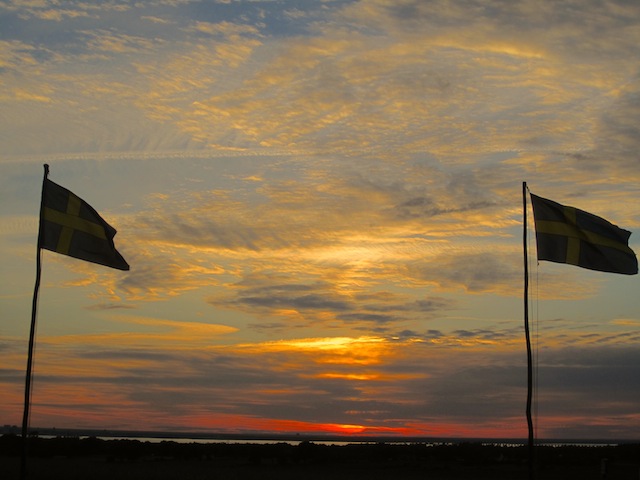 Addiction is one of the strongest words in our society today. It represents a taboo, a problem, a behavioural characteristic in a person which must be controlled. We usually associate these thoughts and addictions with things like drugs, alcohol and gambling, but addiction can present itself in any walk of life.
Addiction is one of the strongest words in our society today. It represents a taboo, a problem, a behavioural characteristic in a person which must be controlled. We usually associate these thoughts and addictions with things like drugs, alcohol and gambling, but addiction can present itself in any walk of life.
Sometimes these addictions may have other names, like OCD, hoarding and jet-setting. Yes, although it’s unusual, people can have a compulsion to travel, or an addiction to the freedom they feel from this.
Freedom is not something you would typically associate with an addiction, as addiction itself usually presents some sort of control over a person and their behaviour. However it’s not uncommon for someone to have a constant urge to travel, to not be tied down. So much so, this condition has its own name: dromomania.
The term describes a medical condition in which sufferers have a constant and sudden uncontrollable urge to wander long distances. In extreme cases it will come with bouts of amnesia. For the most part though, dromomania is loosely used to describe people with a high emotional and/or physical desire to explore new places. It often turns into an addiction without the traveller themselves realising it, and can often be at the expense of those around the person, such as family and long-time friends.

Thought provoking sunset
Other than a serious medical condition, those with a strong desire to explore the world are usually seen to have ‘wanderlust’. When we talk about this, we usually imagine people who go on more than one holiday a year, and are always jetting off to different continents. For the most part, this is mainly harmless, as it’s human nature to be curious about the world around you. However, in a small group of people there is a serious and compelling need to constantly either be exploring new places, or planning their next trip to a tee.
What is it that attracts people to these new and foreign climes? Well, partly it is human nature, the basic desire to explore new territory. This can be traced back to the earliest times, where man would explore the land to find the best place to settle.
Yet the attraction and addiction this small group suffer from, shows little sign of settling in any way. For most sufferers, although curiosity plays a role in their need to travel, the biggest attraction to exploring the world is the escapism and freedom it offers.
What man is truly free except he who is without responsibility and with nothing to tie him down? For most adults, a high-powered stressful career combined with the responsibility of paying your bills, getting on the housing ladder, getting married, planning a family and so on just doesn’t stand up to the sheer escapism of travelling the world without a care or responsibility to anyone. The difference being that whilst the majority of us will grumble and get on with it, perhaps saving for one vacation a year, those addicted to freedom and travel will simply pack their bags and be on their way.
Of course many other things attract people to travelling – from the weather to the architecture, festivals, lifestyle, culture and everything in between. However whilst most of us are happy to save for a two week vacation each year, this proves less than enough for some people.
Whilst there are no known rehabilitation centres for those addicted to travel, the issue still remains very real. The important thing is getting to the root of the problem – find out why these people are compelled to keep fleeing to foreign lands – and find a way to combat or control it positively.
For the most part, the main attraction to travel is the thing that compels people and keeps them going back on the road. This may be for the annual music festival, in which case it could be an underlying yet completely different addiction, or it could be for the escapism and lack of responsibility offered.
For instance if you find that you can’t settle in a job or apartment for more than six months without feeling trapped, or in some severe cases even depressed by the thought of this being the routine of your life, then you may find that you’re addicted to freedom.
The important thing is to recognise this as an issue. Find out what it is you’re really escaping from. Do you find yourself overwhelmed by the thought of a responsible adult life with bills and a home and a 9-5 job? Maybe you find that you can’t just settle into a routine and like not knowing what the next day holds. Or maybe you secretly feel a little bit lonely in the middle of Koh Pha Ngan, Thailand surrounded by fellow Full Moon Party-goers, knowing these people are only temporary in your life, but that temporary is still better than the alternative of getting hurt. Or maybe you’re just constantly searching for a place, culture and lifestyle you completely identify and feel at home with – you just haven’t found the right place yet.
Either way, ultimately – as with most addictions – there is a fine line between a healthy and regular enjoyment or pleasure experienced from something, and an unhealthy obsession which is no longer harmless and has negative repercussions in different aspects of your life. With addiction to travel and freedom, this can have a seriously negative effect on your relationships with friends and family. Any new people you meet on your travels start to become temporary friends, and the family and friends you have known for most of your life can end up as a Skype buddy that you may have real contact with about once per year.
As long as people recognise this and have a willingness to change it, addiction to freedom shouldn’t be too hard to overcome. However, as it can turn into an unhealthy and costly obsession, it may be more difficult to manage in some people than others. As travel becomes easier and more accessible for more and more people, it may be the case that in a few years we’ll have the need for travel rehab centres and other treatment programmes for this addiction.







Leave a Reply